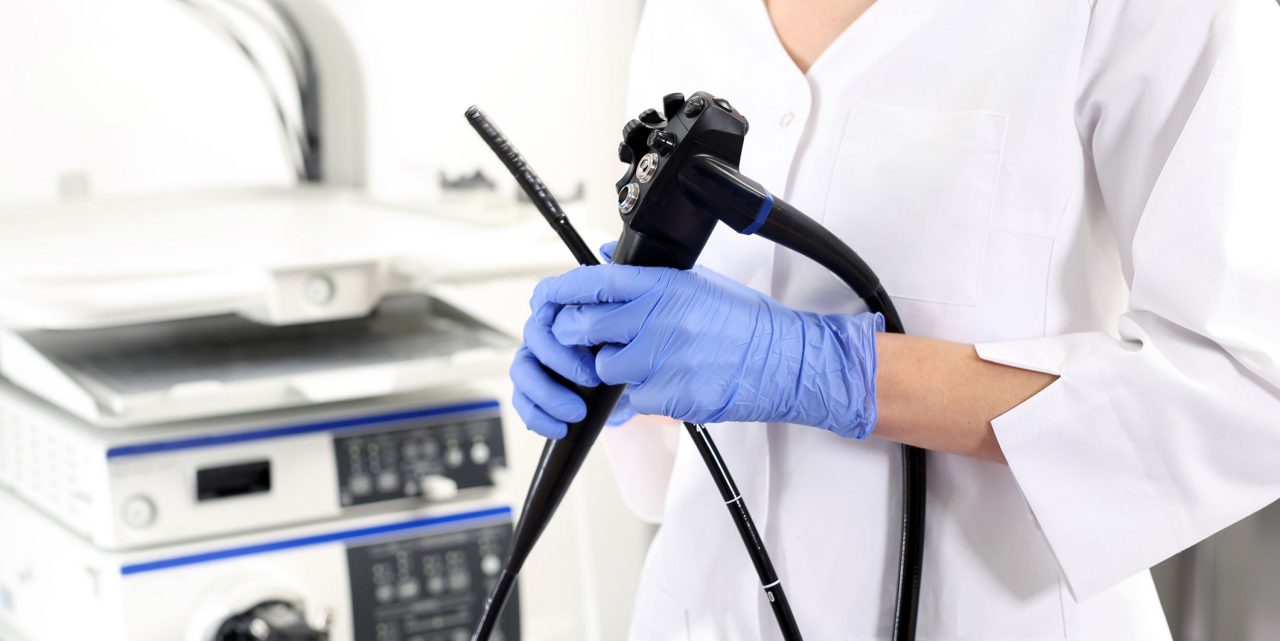What Is a Colonoscopy?

What is a colonoscopy? This procedure detects signs of colon, or colorectal, cancer. Catching this cancer early improves your chances of recovery and survival.
A colonoscopy is a procedure that checks the health of your colon (large intestine). It screens for colorectal cancer, colorectal polyps, ulcerative colitis, and Crohn’s disease.
You’ll be asked to drink a prep solution that acts as a laxative to clean out your colon and give the doctor the best view possible. This is typically done the night before. Most colonoscopies are scheduled for early the next morning.
A doctor will use a colonoscope, a long, thin, flexible instrument that magnifies the view of your colon and rectum. It is performed in an outpatient setting. Patients are comfortable, with minimum inconvenience.
Your insurance will cover the procedure as part of routine health screening recommendations.
YOU MIGHT ALSO LIKE: Colon Cancer Screening Guidelines
“Because colonoscopy allows doctors to identify and remove certain types of colon polyps that may develop into cancer, colonoscopy can be a therapeutic and even life-saving procedure,” according to the American Society of Colon and Rectal Surgeons.
Ulcerative colitis and Crohn's disease are also serious diseases that increase your risk of colorectal cancer.
What is colon cancer?
Most colon cancers begin as non-cancerous polyps (tiny, fastgrowing cells that may become cancer). Removing polyps or finding cancer can increase your chances of a full recovery. During a colonoscopy, a doctor can remove polyps with tiny instruments such as forceps.
When should you have a colonoscopy?
Adults ages 45 to 75 with average risk factors have several options for screening schedules. You can have flexible sigmoidoscopy every 5 years, colonoscopy every 10 years, double-contrast barium enema every 5 years, or virtual colonoscopy every 5 years.
These same adults should also have fecal occult blood testing every year.
If you have a parent, sibling, or child who was diagnosed with colorectal cancer, your risk is two to four times higher than the risk for someone without that history, the American Cancer Society reports. Your doctor may recommend that you have a colonoscopy starting at age 40, or 10 years before the age that an immediate family member was diagnosed with cancer. You might need more frequent screening and genetic counselling.
People ages 76 to 85 do not need regular screening, and men and women older than 85 do not need any screening. Know your risks for colon cancer ahead of time.
How long does a colonoscopy take?
You’ll be placed on your side with your knees drawn toward your chest, and you’ll be given medication that helps you relax. You may not fall completely asleep during the procedure, but most patients don’t remember their colonoscopy.
Your doctor will guide a scope that is inserted through the anus with air inserted to open the colon and make viewing clear. The tube that’s inserted has a light and camera at the end that sends pictures to a TV screen.
Your heart rate, breathing, and oxygen level is monitored throughout the procedure, which can take about 15 to 60 minutes.
Most patients go home 30 to 90 minutes after the procedure, but they may feel groggy and should not work or drive that day.
What to eat after colonoscopy
You may want to eat a large meal after fasting for the procedure, but it’s better to start with light meals and ease into eating more after the first day. You might have minor cramping or gas.
You should seek immediate medical care if you have severe abdominal pain, fever, continued bloody bowel movements, dizziness, or weakness after a typical colonoscopy, according to the National Institute of Diabetes and Digestive and Kidney Diseases (NIDDKD).
What is a virtual colonoscopy?
Virtual colonoscopy takes less time and doesn’t require a doctor to insert a colonoscope into the entire length of your colon. Virtual colonoscopy may not be as effective as colonoscopy at detecting certain polyps, and doctors can’t treat problems during virtual colonoscopy, while they can during colonoscopy. Your health insurance coverage for virtual colonoscopy and virtual colonoscopy may also be different, according to NIDDKD.
Why you should have a colonoscopy
Colonoscopies are extremely valuable. Every year, about 150,000 new cases of colorectal cancer are diagnosed in the U.S., and more than 50,000 people die from the disease. It’s been estimated that increased awareness and screening can save at least 30,000 lives a year.
Yet, even among people 50 and older, about a third haven’t been getting regularly screened.
“The most common reason patients cite for not getting a colonoscopy is that their doctor did not discuss it with them,” according to the American College of Gastroenterology. “The next most common reason is fear or avoidance of the preparation, which involves taking a laxative which causes temporary diarrhea for several hours. In addition, many people are simply unaware that they need colon cancer screening.”
Updated:
March 02, 2023
Reviewed By:
Janet O’Dell, RN